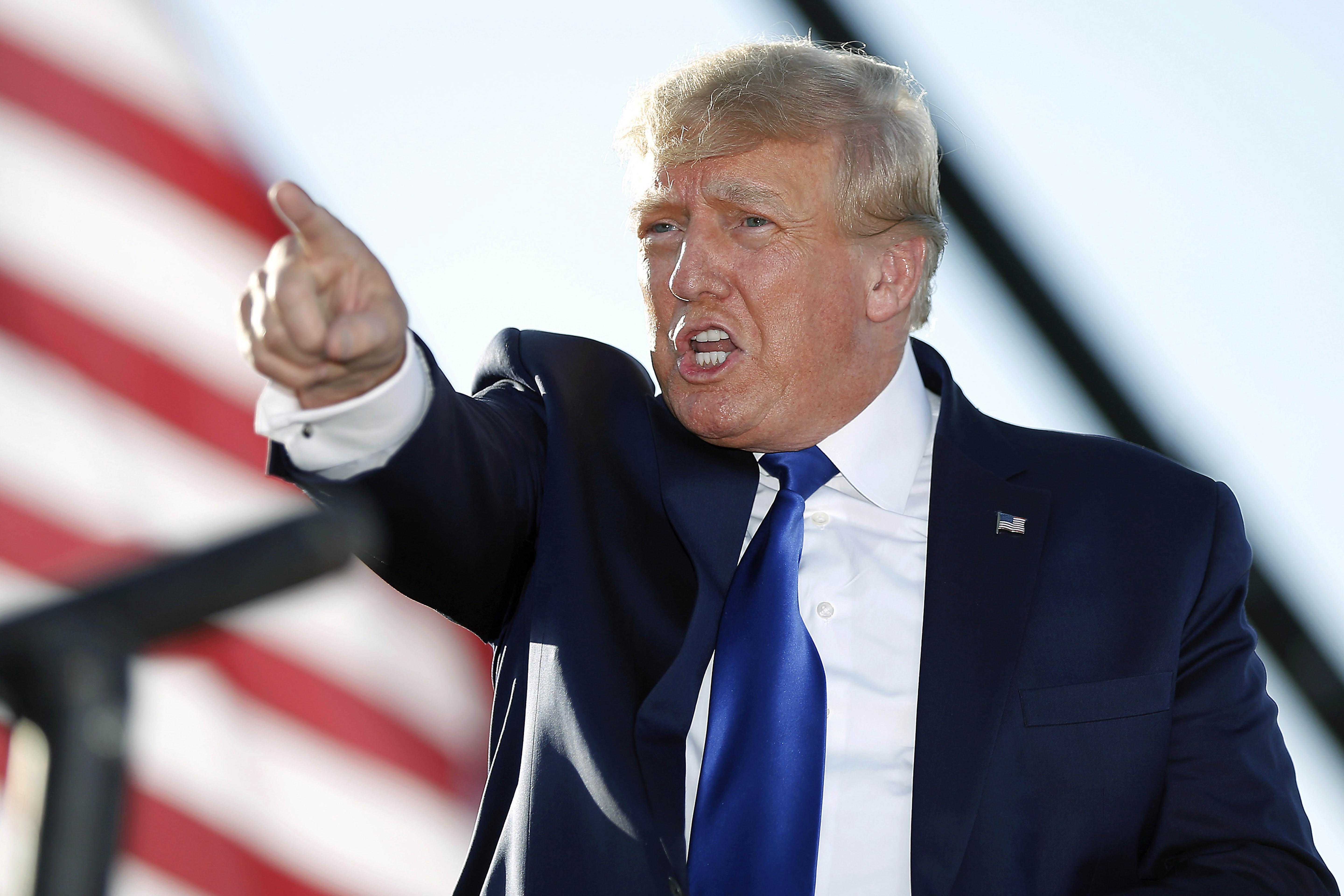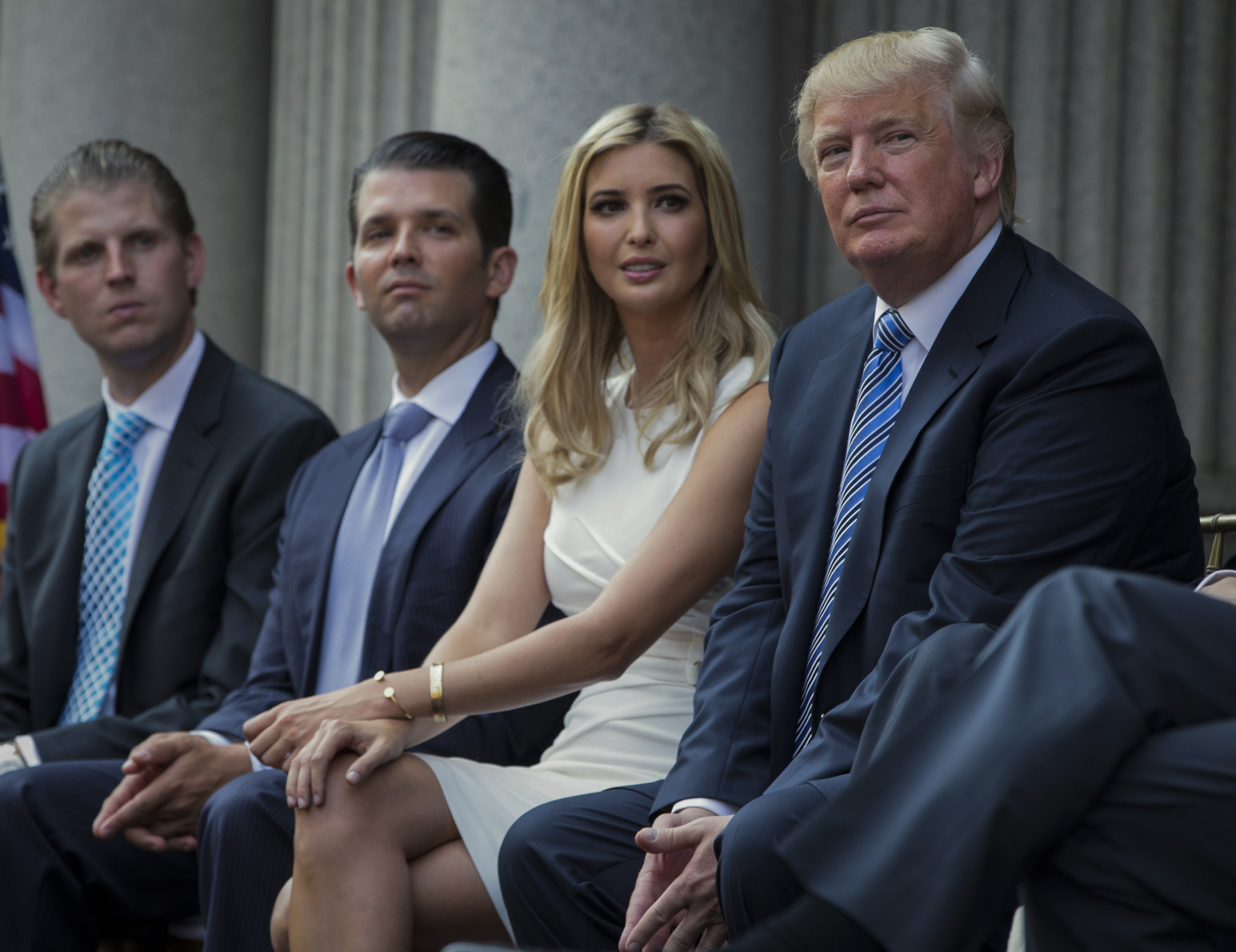A New York appeals court has ruled former US President Donald Trump and two of his adult children must sit for depositions in the New York attorney general's civil investigation into the Trump Organisation.
In a four-page ruling, the court ruled that a lower court "properly rejected appellants' arguments that the subpoenas issued by the OAG should be quashed."
The appeals court said the criminal investigation does not preclude New York Attorney General Letitia James, a Democrat, from pursuing her civil investigation, including testimony.

A four-judge panel in the appellate division of the state's trial court upheld Manhattan Judge Arthur Engoron's February 17 ruling enforcing subpoenas for Trump and his two eldest children – Ivanka Trump and Donald Trump Jr – to give deposition testimony in Attorney General Letitia James' probe.
Trump had appealed, seeking to overturn the ruling. His lawyers argued that ordering the Trumps to testify violated their constitutional rights because their answers could be used in a parallel criminal investigation.
"The existence of a criminal investigation does not preclude civil discovery of related facts, at which a party may exercise the privilege against self-incrimination," the four-judge panel wrote, citing the Fifth Amendment right against self-incrimination.
James' office subpoenas Trump, Ivanka Trump and Donald Trump Jr. for testimony. Eric Trump was previously deposed and declined to answer more than 500 questions, citing his Fifth Amendment right against self-incrimination.

Trump could further appeal the ruling. Ronald Fischetti, an attorney for Trump, had no immediate comment.
"A court has once again ruled in our favour and ordered Donald Trump, Donald Trump Jr., and Ivanka Trump to appear before my office to testify under oath. Our investigation will continue undeterred because no one is above the law," James tweeted in response to the ruling.
James, a Democrat, has said her investigation has uncovered evidence Trump's company, the Trump Organisation, used "fraudulent or misleading" valuations of assets like golf courses and skyscrapers to get loans and tax benefits.
Thursday's ruling could mean a tough decision for Trump about whether to answer questions, or stay silent, citing his Fifth Amendment right against self-incrimination. Anything Trump says in a civil deposition could be used against him in the criminal probe being overseen by the Manhattan district attorney's office.
https://twitter.com/NewYorkStateAG/status/1529843635612790784?ref_src=twsrc%5Etfw
At a hearing prior to Engoron's February 17 ruling, Trump's lawyers argued that having him sit for a civil deposition is an improper attempt to get around a state law barring prosecutors from calling someone to testify before a criminal grand jury without giving them immunity.
A lawyer for the attorney general's office told Engoron that it wasn't unusual to have civil and criminal investigations proceeding at the same time, and Engoron rejected a request from lawyers for the Trumps to pause the civil probe until the criminal matter is over.
Last summer, spurred by evidence uncovered in James' civil investigation, the Manhattan district attorney's office charged the Trump Organisation and its longtime finance chief, Allen Weisselberg, with tax fraud, alleging he collected more than $US1.7 million ($2.4m) in off-the-books compensation. Weisselberg and the company have pleaded not guilty.

